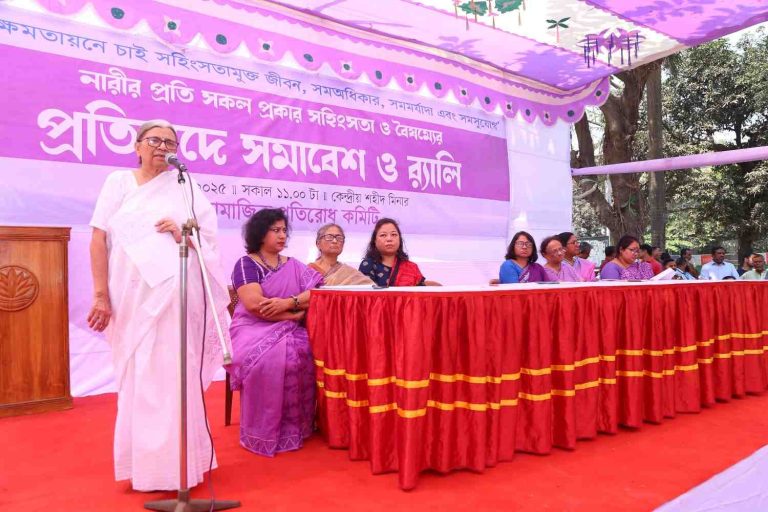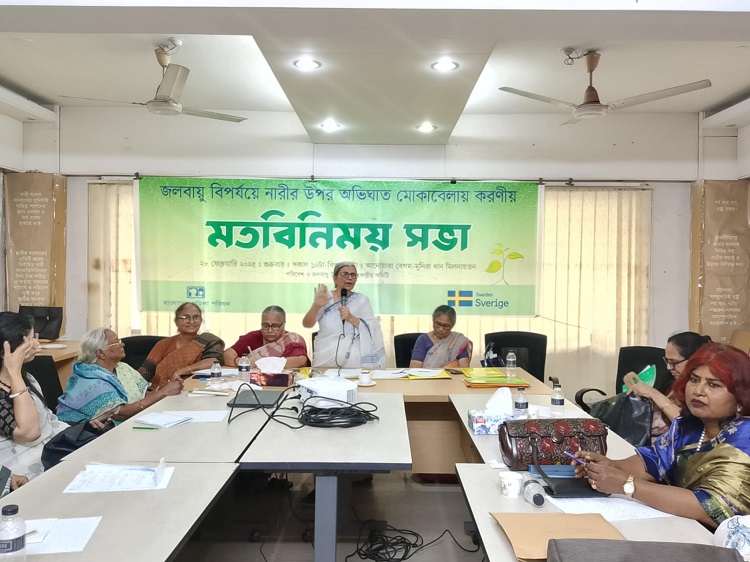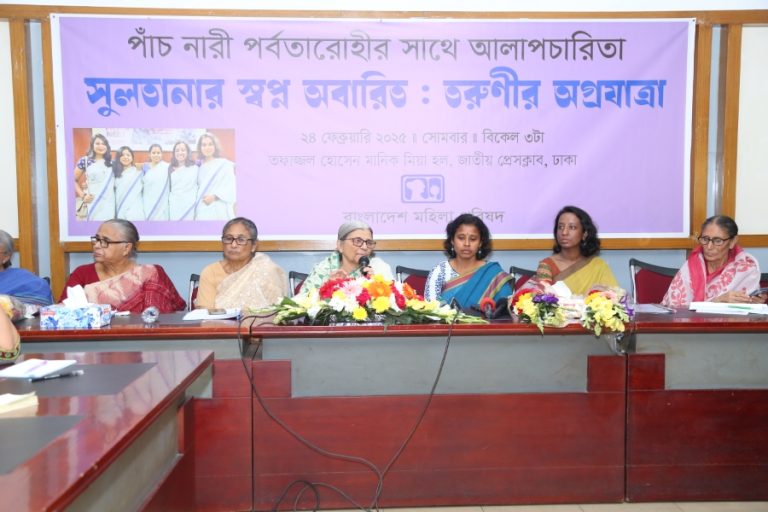Bangladesh Mahila Parishad (BMP) has been continuously struggling for more than 5 decades with the aim of establishing equal rights and equal status of women in family, society, and state. Since the birth of the organization, BMP has been playing an active role in the multi-dimensional movement and fought for the prevention of women’s oppression and the establishment of a society and state free from discrimination between men and women and the demand for equal rights.
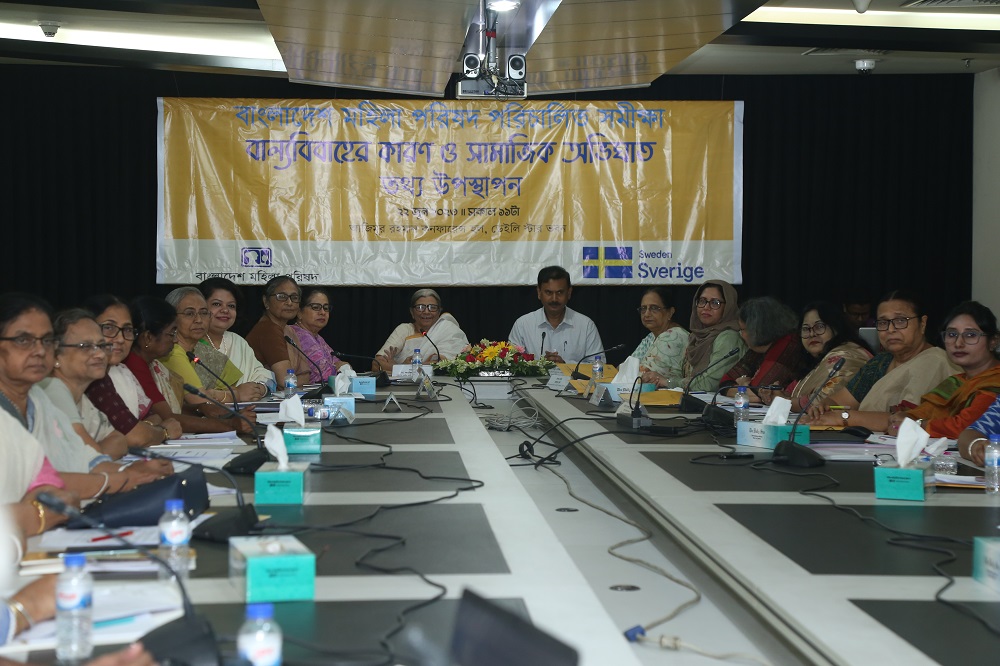
We know that child marriage is a social practice that reflects long-standing social values and the unequal status of men and women. Bangladesh has the second highest rate of child marriage in the world. The Bangladesh Health Demographic Survey found that three-quarters of women aged 20 to 49 were married before the age of 18.
Actually, it is difficult to tell the percentage of child marriage in Bangladesh. Because on the one hand, there are no official statistics on this matter, on the other hand, the parents of girls who are victims of child marriage do not want to give information about this. We know that in South Asian culture, parents play a major role in the marriage of children.
Child marriage is the biggest human rights violation for a child.
The Prevention of Child Marriage Act of 1929 prohibited the marriage of girls and boys before the age of 14 and 18. The Act was amended in 1978 to set the minimum age of marriage at 18 for girls and 21 for boys. In this law, child marriage is declared a punishable crime, and the period of punishment and the amount of fine is significantly less compared to the present time. The civil society of the country, including the women’s movement, continues to demand the amendment of the law in order to bring the law up-to-date.
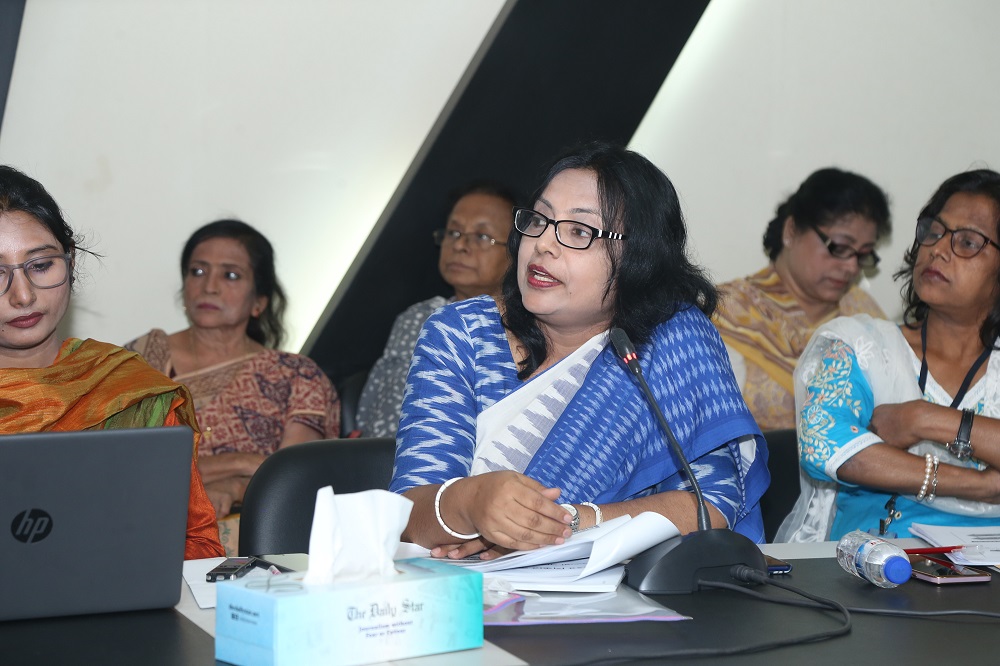
At one point in 2017, the Prevention of Child Marriage Act 2017 was passed by the National Parliament and the minimum age of marriage for girls remains 18 and for boys remain21. However, special conditions are added in section 19 of this law. Where it is stated that “Notwithstanding anything contained in other provisions of this Act, a marriage solemnized in the best interests of a minor in any special context prescribed by law shall not constitute an offense under this Act if the marriage is solemnized by the order of the court and with the consent of the parents or guardians, as the case may be, in accordance with the procedure prescribed by law.” Under the leadership of BMP, the movement to cancel this special condition was strong nationwide, still, the government passed this law with this special condition in the national parliament.
At the beginning of 2020, the world faced the terrible storm of Covid19. As a result, many factories, offices, and courts are closed in our country for a long time. Millions of people became jobless. All educational institutions are closed. The future life of millions of students was uncertain. The impact of all these disasters had the most effects on the lives of women and at the same time on the lives of adolescents. Child marriage is increasing at a massive rate. Girls are mainly victims of this child marriage. Despite an active law in the country and many positive initiatives by various government and non-government organizations including the women’s movement, child marriage continues to grow at an alarming rate. In such a situation BMP initiated to know about this Act and also various government and non-government organizations initiatives. BMP tried to understand after so much effort, why and how girl child marriages are occurring and the effect of this marriage on girl children’s education, health, and on their entire life conducted a survey countrywide on “Causes and Social Impact of Child Marriage”.
Taking into account the prevalence of child marriage, questionnaires are formulated in various ways. This large-scale research survey was made possible with the participation of BMP’s wing of women’s committee, volunteers, and organizers across the country.
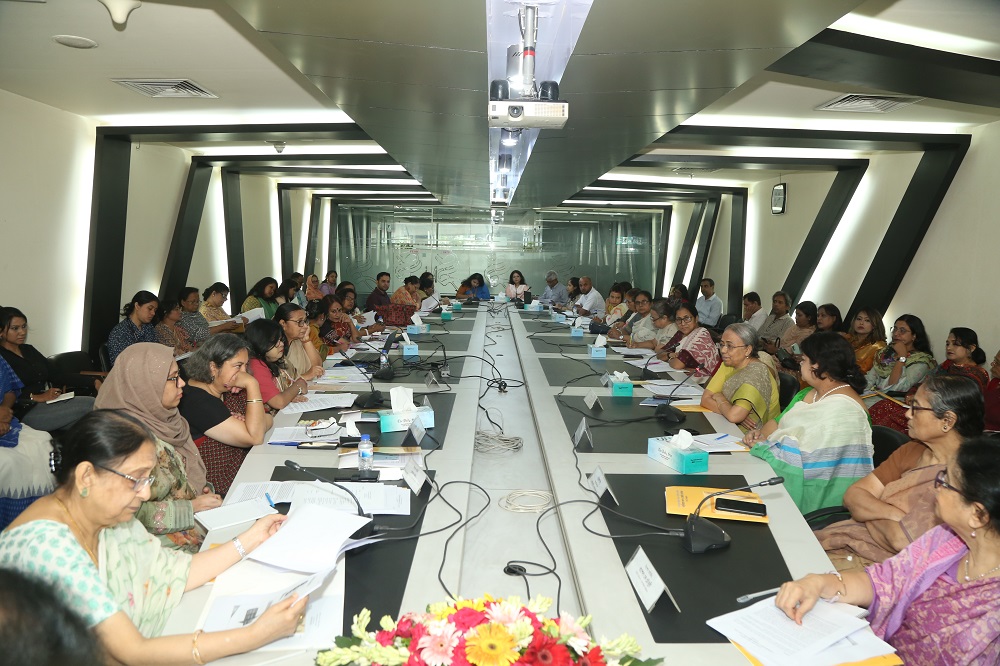
Objectives of the survey:
- To know the causes of child marriage.
- To know how child marriages are taking place even though there is a law in the country to prevent child marriage.
- To know if child marriage has increased during the Covid period.
- To identify whether the government committees to prevent child marriage effectively and responsibly took initiative.
- To Know the actual role of marriage registers in child marriage.
- Adoption of recommendations on measures to prevent child marriage.
- Building strong movement based on the information received from the survey.
Survey methods
Data for the survey is collected through direct interviews. In this case, 5 types of respondents are determined.
Survey period
Child marriages from the period 2018 to 2021 are included in the survey.
The survey has been conducted from July 2021 to May 2023.
Survey area
Data was collected from 37 districts of 8 divisions including City Corporations, districts, upazilas, municipalities, and unions.
Survey questionnaire and respondents
Responses are collected through 5 different types of questions. The total number of respondents was 2060. The data was collected using both structured questions and open-ended questions. The questionnaire was finalized based on the opinions of the organizers involved in the prevention of violence against women and child marriage.
Data collector
The organizers of 37 district branches of Bangladesh Mahila Parishad carried out the responsibility of data collection.

